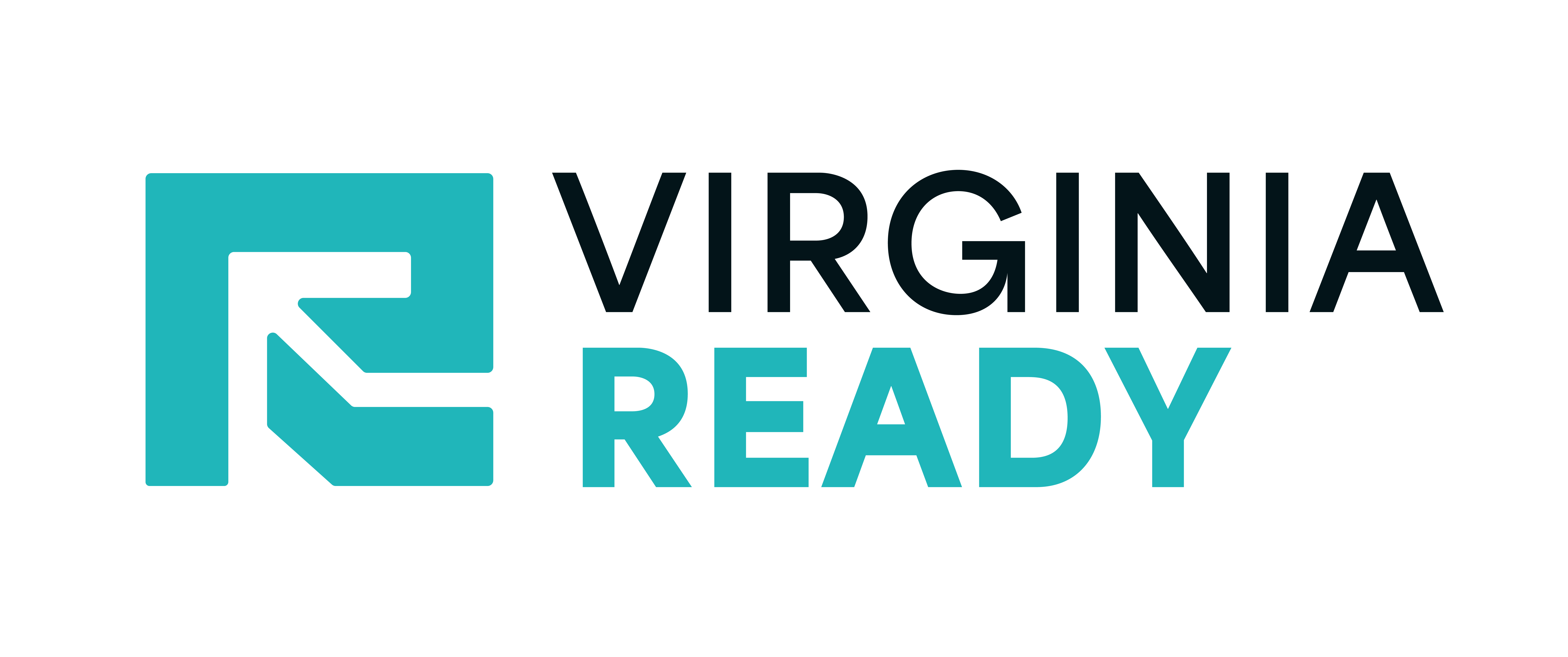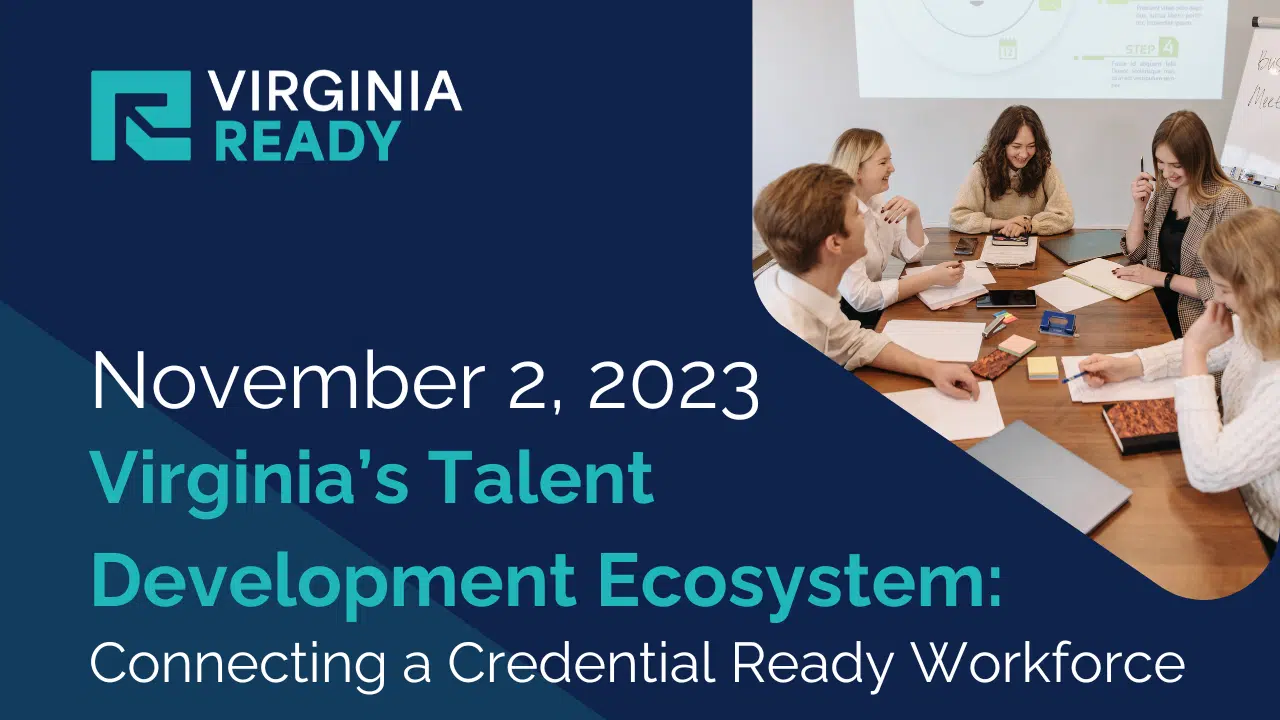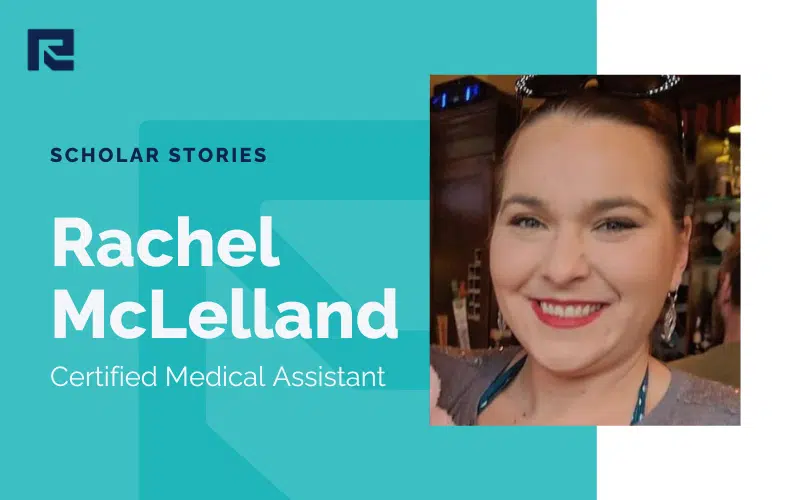
It is said that 90% of companies capitalize on the talents and experience of older workers. Despite the detrimental effects the global pandemic had on our economy, our nation is now facing a pivotal moment in workforce history: there are not enough younger workers to make up for the huge employment gap expected to be left behind by the aging baby boomer workforce.
The Virginia Ready Initiative (VA Ready) met with business and education leaders across the Commonwealth virtually to discuss best practices in overcoming knowledge loss while simultaneously preparing incoming talent. Moderated by VA Ready Partnerships Manager Taylor Beck, the Summit welcomed speakers Dr. Lori Esposito Murray of the Committee for Economic Development and Matt Kellam of Dominion Energy to discuss their findings and possible solutions on the topic.
As President of the Committee for Economic Development of the Conference Board, Dr. Murray brings extensive experience in domestic and economic policy and presented the most recent report by the board, The U.S. Labor Shortage: A Plan To Tackle This Challenge.
"We're dealing with the perfect storm of aging Americans, low birth rates, and less participation in the workforce," said Dr. Murray.
Job openings hit near historic highs with over 11 million openings for the past eight months. Since June 2021, employment was up by over 5 million, but job openings have not retreated. Dr. Murray credited the unfilled positions to lower labor workforce participation and a decrease in immigration to the United States.
"We need to bring together business, education, and funding public policy leaders to collaborate on finding solutions," said Dr. Murray.
Dr. Murray also suggested companies reform hiring parameters including hiring based on skill sets over commonly sought-after four-year degrees. Diversifying talent pools will also aid the hiring process by recruiting long-term unemployed candidates, underrepresented groups, and older employees who wish to continue working—efforts supported by VA Ready and their partners.
Matt Kellam, Workforce Development and Planning Coordinator of Dominion Energy, presented his findings and insights on overcoming knowledge loss and supporting talent pipelines through internal movement.
"If we're going to appeal to a younger workforce, we have to be deliberate with our education partnerships," said Kellam. "Your tenured employee may be the best person to deliver training to classrooms."
Kellam attributed hands-on training through experiential learning as a driving force in attracting new talent. Engaging with the older workforce will help leverage development through "bridge training," adding a fulfilling sense of purpose and meaning along with connection.
Funneling experienced employees into positions to share their institutional knowledge is an ideal setup both for businesses and education partners. That can either be internal apprenticeship, mentoring, and training programs, or encouraging employees to instruct at the community college level. The latter provides a vital source of talent for community colleges where instructors can be hard to find.
Newport News Shipbuilding, a division of HII, works with several colleges in the Tidewater region to train Virginians for maritime trades. But finding instructors to teach those courses initially proved to be difficult.
Larry Horne, Workforce Development Specialist with Newport News Shipbuilding, said they found a solution in canvasing almost 100 retirees, asking if they'd be willing to instruct. Now, "all of the [maritime] instructors at the community colleges are retired shipbuilders." In addition to retirees, several current Newport News Shipbuilding employees clock out at the shipyard and head to Virginia Peninsula Community College to teach evening courses.
While Mr. Horne recommends businesses follow a similar model to provide instructors, he also recommends community colleges provide training for those who may want to teach and have the industry experience needed, but may need to learn how to share that knowledge with students.
When asked about the proportion of the aging workforce transitioning to contract work, both Kellam and Dr. Murray shared their perspectives.
“Industry folks need to think differently about how they list qualifications and expectations of positions,” said Kellam. “Not to minimize the workload, but to reevaluate who can do gig work and how it could be done.”
“Highlighting flex hours and certifications while moving away from four-year degrees in job descriptions, as well as non-wage benefits, will help fill the gap,” said Dr. Murray.
At every Summit, Executive Director Natalie Foster concludes the meeting by providing a strategic plan update for their partners. In alignment with their mission to support the reskilling of Virginians for in-demand jobs of today and the future, she shared the following focus areas for her team:
- Merging industries by engaging healthcare manufacturing (pharmaceuticals) coming to the Richmond area
- The ability to meet industry hiring needs by supporting the development of a customer service credential for businesses with call centers
- Supporting programs focused on solar and energy at the Virginia Infrastructure Academy
The next Partner Summit will take place virtually on April 26, 2023 followed by an in-person Summit in October 2023—the first in-person gathering of partners.
Virginia Ready continues to connect motivated Virginians to credential programs offered by Virginia Community Colleges and other Education Partners, ultimately leading to family-sustaining jobs in their chosen industry. Our Partner Summits offer a space for Business and Education Partners to discuss challenges and solutions in hiring and training this workforce in order to provide improved outcomes for VA Ready Scholars.
In the News
More Related Blogs
Duis aute irure dolor in reprehenderit in voluptate velit esse
cillum dolore eu fugiat nulla pariatur.


Succeed in your Career. Become a Scholar.
Take the first step towards success in your career by becoming a Virginia Ready Scholar and gain access to valuable resources, training, and support to achieve your professional goals.




